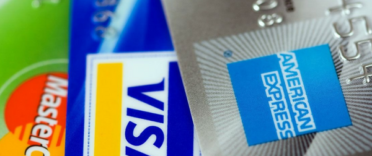Increasingly more and more of us pay by credit card while on holiday abroad especially since the phasing out of traveller's cheques and the introduction of app-only banks with fee-free spending. Not only can you potentially save money by using a card while abroad, but it is also convenient and provides additional security.
But, if you have shopped around for the best credit card deal for use abroad (one that does not levy a foreign exchange fee) you could still find yourself out of pocket when you come to use it, and be none the wiser!
This is because often when using a card to settle a bill while abroad you may be given the option to have it presented in Sterling or the local currency. If you opt for Sterling the retailer will convert the bill into Sterling using their own exchange rate which will almost certainly be worse than the exchange rate that would have been used by your card issuer, had you paid in the local currency. The practice is also now used at some foreign ATMs. This is not a scam but a legitimate practice called Dynamic Currency Conversion (DCC). The difference in cost can be as much as 4% but exact figures are difficult to come by.
What is Dynamic Currency Conversion?
Dynamic Currency Conversion (DCC) is a currency conversion fee that is set by the merchant when making a payment abroad. It allows you to make a payment in your home currency rather than the local currency but this usually comes with an additional fee. Paying in your home currency is usually more expensive compared to paying in the local currency as it includes the merchant's exchange rate plus additional fees. DCC is often presented as a choice when making a payment on your card abroad e.g. in a shop or at a restaurant and it can also be offered when withdrawing cash at an ATM.
If asked to pay in GBP or the local currency, always select the local currency to avoid additional fees.
How to avoid fees when spending abroad
When abroad, you should be given the option to decide the currency your bill is presented to you in, but this is not always the case. In short, when it comes to settling a bill abroad just remember the old saying ‘When in Rome……’ and you should be okay.
Below we share some tips on how to avoid fees when abroad:
- Always pay a bill in the local currency
- Refuse to pay a bill converted into Sterling, if you have not chosen to do so, particularly if the retailer makes excuses as to why you can’t pay in the local currency. In this instance either walk away or pay in cash.
- Use a travel credit card with no fees for spending abroad
- Use a bank with fee-free spending abroad
- Take an amount of your spending money in cash
For additional ways to save money on your holiday, read the following articles:
- Best websites to cut the cost of your holiday
- Holiday travel checklist: Save time & money with our pre-departure checklist
- 5 ways to save money on travel insurance
- The best ways to take money abroad
If a link has an * beside it this means that it is an affiliated link. If you go via the link Money to the Masses may receive a small fee which helps keep Money to the Masses free to use. But as you can clearly see this has in no way influenced this independent and balanced review of the product.







